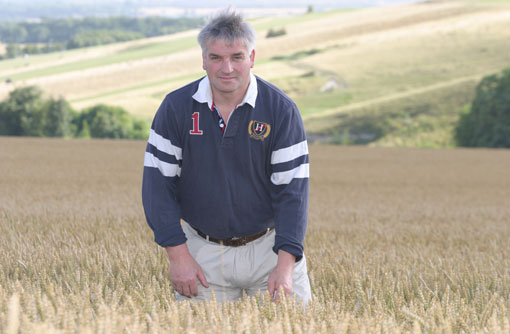Robert Law tries grapples with huge variation in yields

Another harvest shower yesterday evening brought an early conclusion to the day’s harvesting and caused an adjournment for some of us to a local hostelry for a steak, liquid refreshment and a chance to compare notes.
We all had one thing in common: we were all “baching” with our families having gone off on holidays leaving the men to get the harvesting done. No pub talk about yields last night; instead a bit of competition as to who had heard of the lowest bushel weight and reminiscing about the harvest of 1999 when Consort ruled the waves and the fact that we have actually moved on 13 years and not got back to the wheat yields we were achieving then.
While we all know that the weather this summer has been the influence on yield levels and quality, it is the colossal variation we are hearing about that is becoming difficult to explain.
Various theories about differences between wheat varieties, time of drilling, preceeding cropping, chemistry used, seed dressings and type of chemistry have been aired, but it not been possible to hang one’s hat on one area as there is always a crop or situation to disprove a possible explanation.
One thing that I am glad that I continue to practice on the farms here is to continue growing a diverse range of crops rather than being reliant on only two, even though it does make for more work and management hassles.
On the Nottinghamshire farm we are experiencing the joys of having virtually all our combinable crops being grown for seed. Naturally spraying off with glyphosate is not an option here and we are struggling with a lot of regrowth, forage rye seed crops, which are about seven foot tall and 80ha of Mascani seed.
Oats, which look about ready for wholecrop silaging. Would I change all this for a life of wheat, rape, killing blackgrass and feeding slugs? Answer, no.
First-generation farmer Robert Law farms 1,500ha on the Herts/Cambs/Essex borders growing cereals, sugar beet, forage rape and turnips for seed. The farms are in a number of environment schemes and carry a flock of 2,500 ewes. He also manages 500ha of Nottinghamshire sand land
Read more from Robert Law
Read more from our Arable Farmer Focus writers.